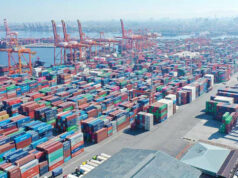THE amended Chiang Mai Initiative Multilateralization (CMIM) agreement took effect Tuesday, offering an improved currency swap arrangement and financial safety net among Association of Southeast Asian Nations (ASEAN) countries and the bloc’s regional partners.
In a statement Tuesday, the Finance department said the amended CMIM has been signed by finance ministers and central bank governors of ASEAN, South Korea, Japan, China, as well as the Hong Kong Monetary Authority.
Through the Bangko Sentral ng Pilipinas, the Philippines has a contribution commitment of $9.104 billion to the CMIM and can borrow up to 2.5 times its contribution commitment, or around $22.76 billion.
The agreement, which started in 2010, aims to help members get through short-term crises.
“Under the CMIM, each member-state can swap its local currency with US dollars based on certain conditions when faced with short-term liquidity or BoP problems,” the Finance department said.
The amended version took effect Tuesday after all 27 signatories approved the document on June 16.
Features of the new version include a more flexible supporting period for financing linked to lending conditions of the International Monetary Fund (IMF) and adjustments of other financing terms such as disbursement dates.
Currently, it said the size of the CMIM has been doubled to $240 billion while the IMF-delinked portion was increased to 30%. Member-countries can now obtain up to 30% of their borrowing cap without being subjected to IMF’s lending conditions.
“The amended agreement also strengthened the CMIM’s coordination with the IMF by establishing a set of operational guidelines, which aims to create a shared view on economic and financial situations, financing needs and policy recommendation for co-financing,” it added. — Beatrice M. Laforga



